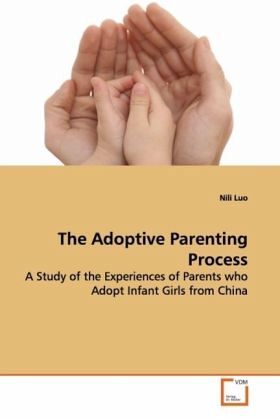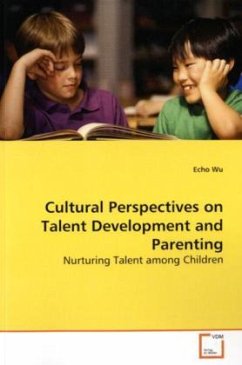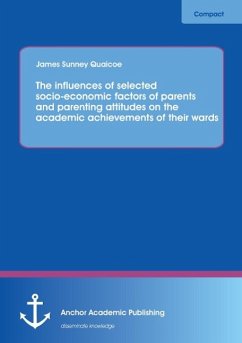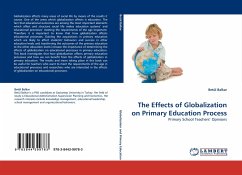
The Adoptive Parenting Process
A Study of the Experiences of Parents who Adopt Infant Girls from China
Versandkostenfrei!
Versandfertig in 6-10 Tagen
32,99 €
inkl. MwSt.

PAYBACK Punkte
16 °P sammeln!
In 2003, there were 39,500 Chinese children living in the US who were adopted from China. While 113 were adopted from 1989-1991, in 2002, 5,900 Chinese children were adopted by US parents. Little is known about the scientific, psychological, or social issues surrounding the adopted children and their parents. The study used a qualitative approach to assess experiences of US parents who had adopted Chinese children. In this study, expected and unexpected results occurred. Analysis of the interviews yielded six major themes: 1) Parents descriptions of their own childhood family structure and chi...
In 2003, there were 39,500 Chinese children living
in the US who were adopted from China. While 113
were adopted from 1989-1991, in 2002, 5,900 Chinese
children were adopted by US parents. Little is known
about the scientific, psychological, or social
issues surrounding the adopted children and their
parents. The study used a qualitative approach to
assess experiences of US parents who had adopted
Chinese children. In this
study, expected and unexpected results occurred.
Analysis of the interviews yielded six major themes:
1) Parents descriptions of their own childhood
family structure and childhood experiences; 2)
Parents expectations, prior to and during the
adoption experience, for the adoption to improve the
family unit; 3) Changes in the parents
relationships after the adoption; 4) The adoptive
parents expectations of the adopted child; 5) The
most challenging experiences of the adoptive
parents; and 6) the meaning of the adoption for the
parents.
in the US who were adopted from China. While 113
were adopted from 1989-1991, in 2002, 5,900 Chinese
children were adopted by US parents. Little is known
about the scientific, psychological, or social
issues surrounding the adopted children and their
parents. The study used a qualitative approach to
assess experiences of US parents who had adopted
Chinese children. In this
study, expected and unexpected results occurred.
Analysis of the interviews yielded six major themes:
1) Parents descriptions of their own childhood
family structure and childhood experiences; 2)
Parents expectations, prior to and during the
adoption experience, for the adoption to improve the
family unit; 3) Changes in the parents
relationships after the adoption; 4) The adoptive
parents expectations of the adopted child; 5) The
most challenging experiences of the adoptive
parents; and 6) the meaning of the adoption for the
parents.












